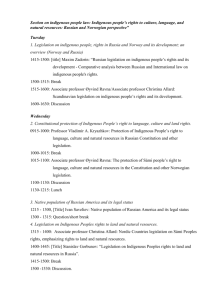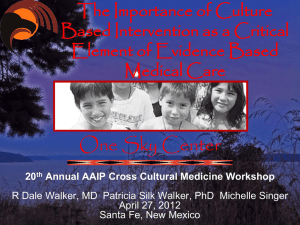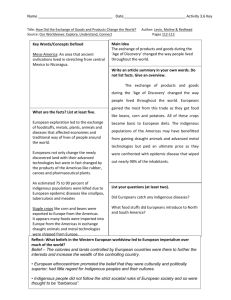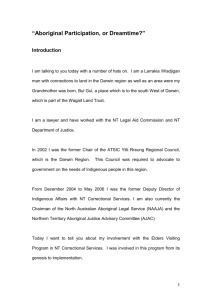California Department of Corrections and Rehabilitation
advertisement
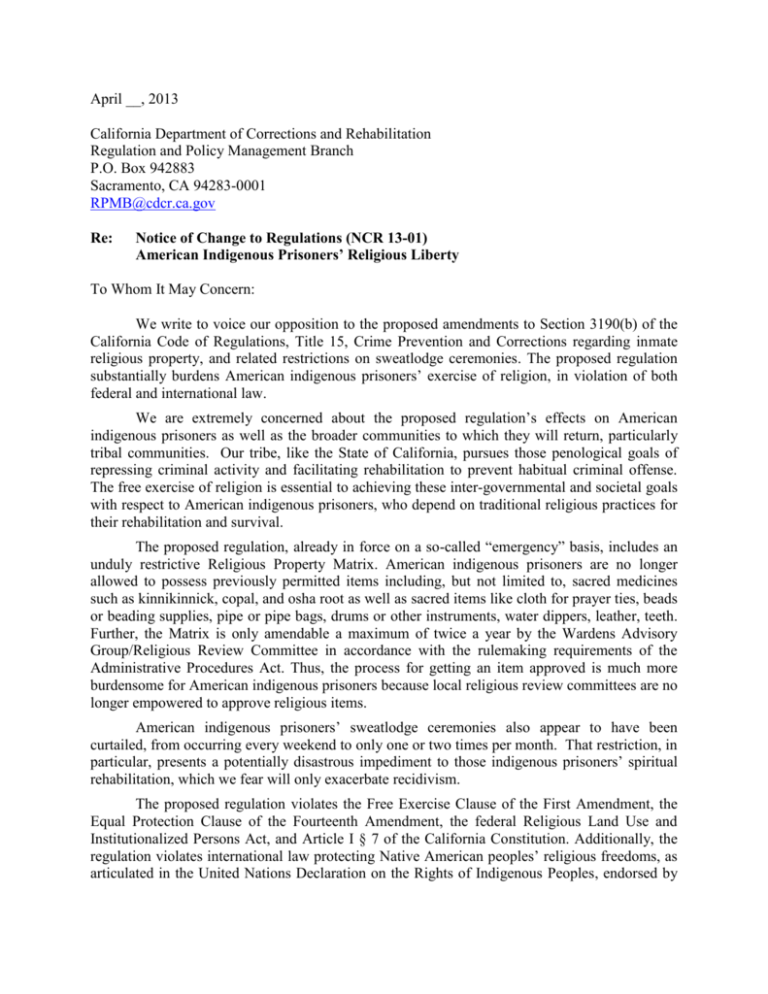
April __, 2013 California Department of Corrections and Rehabilitation Regulation and Policy Management Branch P.O. Box 942883 Sacramento, CA 94283-0001 RPMB@cdcr.ca.gov Re: Notice of Change to Regulations (NCR 13-01) American Indigenous Prisoners’ Religious Liberty To Whom It May Concern: We write to voice our opposition to the proposed amendments to Section 3190(b) of the California Code of Regulations, Title 15, Crime Prevention and Corrections regarding inmate religious property, and related restrictions on sweatlodge ceremonies. The proposed regulation substantially burdens American indigenous prisoners’ exercise of religion, in violation of both federal and international law. We are extremely concerned about the proposed regulation’s effects on American indigenous prisoners as well as the broader communities to which they will return, particularly tribal communities. Our tribe, like the State of California, pursues those penological goals of repressing criminal activity and facilitating rehabilitation to prevent habitual criminal offense. The free exercise of religion is essential to achieving these inter-governmental and societal goals with respect to American indigenous prisoners, who depend on traditional religious practices for their rehabilitation and survival. The proposed regulation, already in force on a so-called “emergency” basis, includes an unduly restrictive Religious Property Matrix. American indigenous prisoners are no longer allowed to possess previously permitted items including, but not limited to, sacred medicines such as kinnikinnick, copal, and osha root as well as sacred items like cloth for prayer ties, beads or beading supplies, pipe or pipe bags, drums or other instruments, water dippers, leather, teeth. Further, the Matrix is only amendable a maximum of twice a year by the Wardens Advisory Group/Religious Review Committee in accordance with the rulemaking requirements of the Administrative Procedures Act. Thus, the process for getting an item approved is much more burdensome for American indigenous prisoners because local religious review committees are no longer empowered to approve religious items. American indigenous prisoners’ sweatlodge ceremonies also appear to have been curtailed, from occurring every weekend to only one or two times per month. That restriction, in particular, presents a potentially disastrous impediment to those indigenous prisoners’ spiritual rehabilitation, which we fear will only exacerbate recidivism. The proposed regulation violates the Free Exercise Clause of the First Amendment, the Equal Protection Clause of the Fourteenth Amendment, the federal Religious Land Use and Institutionalized Persons Act, and Article I § 7 of the California Constitution. Additionally, the regulation violates international law protecting Native American peoples’ religious freedoms, as articulated in the United Nations Declaration on the Rights of Indigenous Peoples, endorsed by the United States in 2010, and the International Covenant on Civil and Political Rights, which the United States ratified in 1992. We urge you to reject the proposed regulation and immediately restore American indigenous prisoners’ ability to possess previously permitted religious property items and to fully participate in sweatlodge ceremonies as before. Future regulations should, at a minimum, include all previously permitted items of American indigenous religious property and ceremonies, as well as a flexible mechanism empowered to approve requests for inadvertently omitted items. Finally, we urge you to engage California tribal governments in meaningful consultation prior to drafting or implementing future religious freedoms regulations that impact American indigenous prisoners. We regret that the proposed amendments to Section 3190(b) and any other new regulations were devised without any tribal consultation whatsoever. Notwithstanding, we stand ready to partner with the Department to explore possibilities for joint development and advancement of our shared penological goals in regard to incarcerated American indigenous peoples. Thank you for your time and consideration of our stated concerns. Sincerely, Cc: Galanda Broadman, PLLC 8606 35th Avenue NE, Ste. L1 Seattle, WA 98115 Cc: Religious Liberty Clinic Stanford Law School Crown Quadrangle 559 Nathan Abbott Way Stanford, CA 94305-8610




